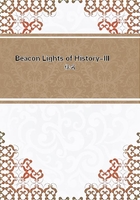
第28章
The consciousness of mankind, in all ages and countries, has ever accepted retribution for sin--more or less permanent--in this world or in the next. And it has equally accepted the existence of a Supreme Intelligence and Power, to whom all are responsible, and in connection with whom human destinies are bound up. The deeper we penetrate into the occult wisdom of the East,--on which light has been shed by modern explorations, monumental inscriptions, manuscripts, historical records, and other things which science and genius have deciphered,--the surer we feel that the esoteric classes of India, Egypt, and China were more united in their views of Supreme Power and Intelligence than was generally supposed fifty years ago. The higher intellects of Asia, in all countries and ages, had more lofty ideas of God than we have a right to infer from the superstitions of the people generally. They had unenlightened ideas as to the grounds of forgiveness. But of the necessity of forgiveness and the favor of the Deity they had no doubt.
The philosophical opinions of these sages gave direction to a great religious movement. Matter was supposed to be inherently evil, and mind was thought to be inherently good. The seat of evil was placed in the body rather than in the heart and mind. Not the thoughts of men were evil, but the passions and appetites of the body. Hence the first thing for a good man to do was to bring the body--this seat of evil--under subjection, and, if possible, to eradicate the passions and appetites which enslave the body; and this was to be done by self-flagellations, penances, austerities, and solitude,--flight from the contaminating influences of the world. All Oriental piety assumed this ascetic form. The transition was easy to the sundering of domestic ties, to the suppression of natural emotions and social enjoyments. The devotee became austere, cold, inhuman, unsocial. He shunned the habitations of men. And the more desirous he was to essay a high religious life and thus rise in favor with God, the more severe and revengeful and unforgiving he made the Deity he adored,--not a compassionate Creator and Father, but an irresistible Power bent on his destruction. This degrading view of the Deity, borrowed from Paganism, tinged the subsequent theology of the Christian monks, and entered largely into the theology of the Middle Ages.
Such was the prevailing philosophy, or theosophy--both lofty and degraded--with which the Christian convert had to contend; not merely the shameless vices of the people, so open and flagrant as to call out disgust and indignation, but also the views which the more virtuous and religious of Pagan saints accepted and promulgated: and not saints alone, but those who made the greatest pretension to intellectual culture, like the Gnostics and Manicheans; those men who were the first to ensnare Saint Augustine,--specious, subtle, sophistical, as acute as the Brahmins of India. It was Eastern philosophy, unquestionably false, that influenced the most powerful institution that existed in Europe for above a thousand years,--an institution which all the learning and eloquence of the Reformers of the sixteenth century could not subvert, except in Protestant countries.
Now what, more specifically, were the ideas which the early monks borrowed from India, Persia, and Egypt, which ultimately took such a firm hold of the European mind?